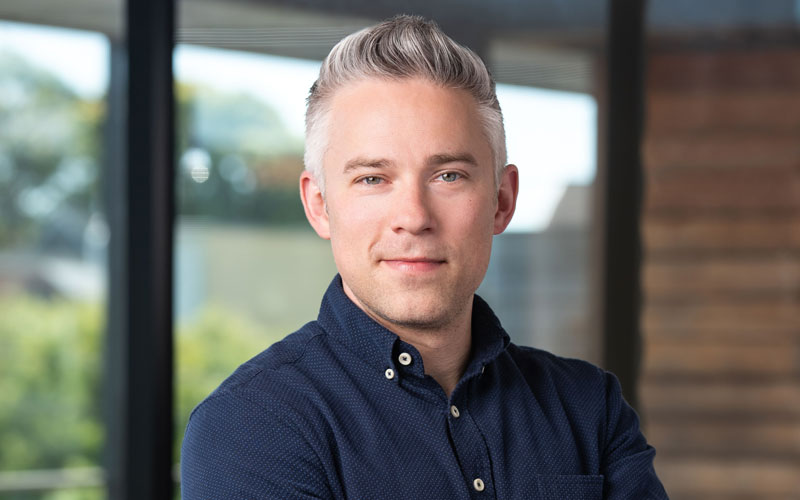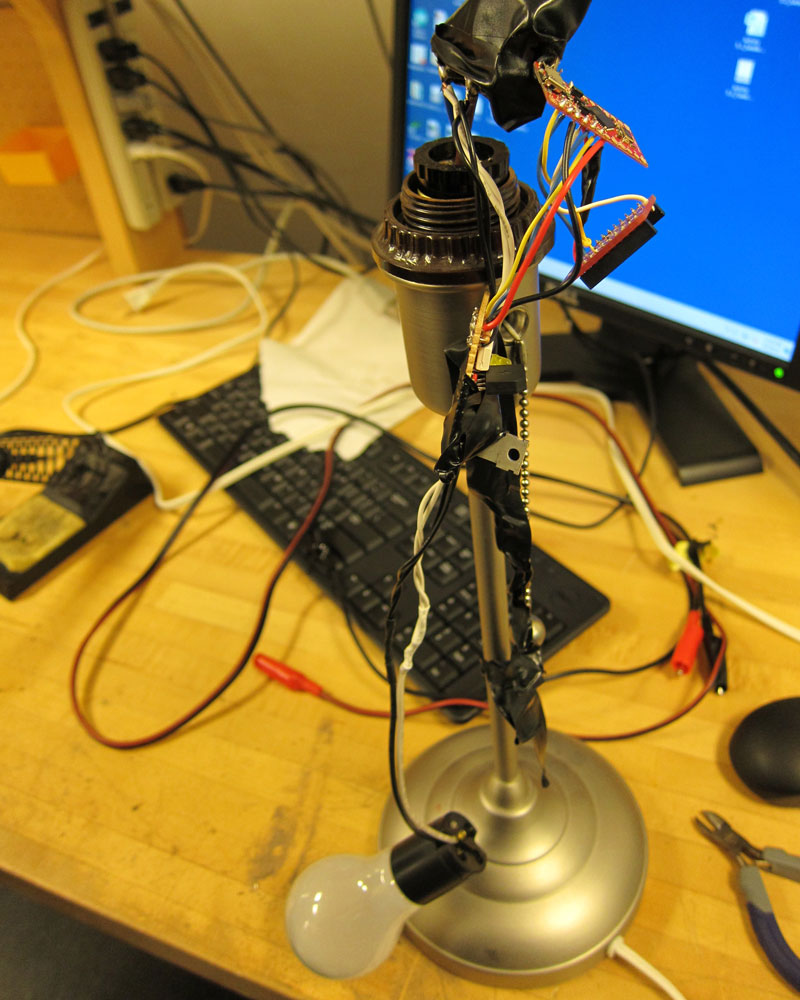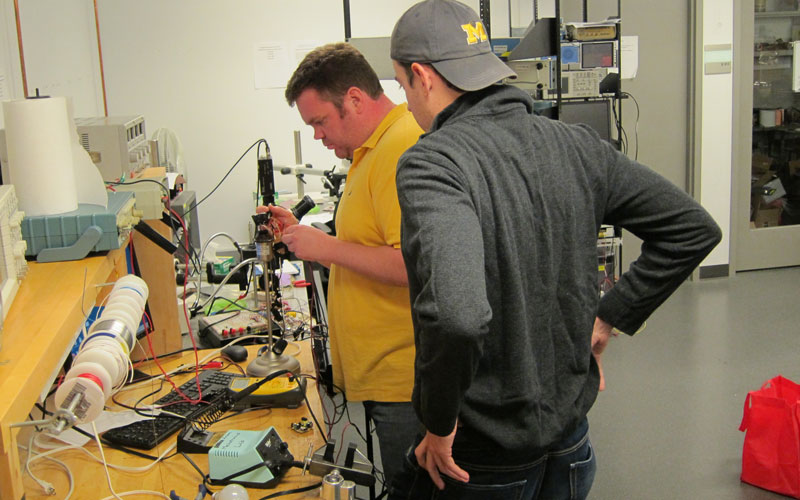Q&A with Zach Supalla, Founder and CEO of Particle
Northwestern alum Zach Supalla (MMM ’12) built IoT company Particle after creating smart light bulb prototype in entrepreneurship class

In 2012, while most of his classmates were polishing résumés and securing job offers, Zach Supalla (MMM ’12) was hunched over a soldering iron in his apartment, meticulously wiring components to create a smart light bulb prototype. Despite not having a formal engineering background (his undergraduate degree was in cognitive science from Dartmouth), Supalla was determined to build something tangible — not just talk about it.
This hands-on approach set him apart in his class at Northwestern’s Farley Center for Entrepreneurship and Innovation. "When we showed up for the final presentation, I came with a physical prototype of a connected light bulb that I had built from scratch in my apartment, and nobody did that," Supalla said. "People thought I was nuts."
That prototype laid the groundwork for what would eventually become Particle, an Internet of Things (IoT) platform now serving hundreds of enterprises and hundreds of thousands of IoT engineers worldwide. The company has raised more than $120 million in venture capital and has been recognized as a major player in the IoT space by publications including Forbes, WIRED, and TechCrunch.
Thirteen years after graduating from Northwestern's MMM Program, Supalla reflects on his journey from student to CEO and the lessons he learned along the way.
What brought you to Northwestern's MMM Program?
I was working as a consultant at McKinsey & Company before applying to Northwestern. I went to Dartmouth for my undergraduate studies, and though I didn't get a technical degree, during my senior year I took a design class in the engineering program at Dartmouth and thought, “I should have been an engineer.” At McKinsey, I kept trying to get myself involved in whatever the closest thing was to design. I applied to the MMM Program because I thought I wanted to become a product designer and work at IDEO.
How did your career aspirations change during the program?
When I got into the MMM Program and met people who were product designers, I found that they often didn’t have much control over the outcomes of their ideas. So, over the course of my first year in the program, I figured out I wanted to do entrepreneurship. In my mind, if I wanted to design things, entrepreneurship was a way to do that.
Which classes at Northwestern were most influential in your entrepreneurial journey?
The Engineering Entrepreneurship class that I took with former Farley Center director Mike Marasco was absolutely the best, most useful class that I took. During the second year in the MMM Program, I used different classes to build out a plan for the business that would eventually become Particle.
What I remember about the class is that it pushed me to think about entrepreneurship not just as building a product. There's one aspect of innovation where you make a thing that people want, but then all these other aspects that focus on delivering a product people want and scaling it. It taught me to think about not just the product but the company and the business around it.

What skills have you learned at Northwestern that have proven most useful in your role as founder and CEO?
It’s definitely not the stuff you would probably guess. The skills I use most are in business law. The day-to-day of being a CEO is mostly about running an operation, and there have been so many times that I’ve needed to understand practical things about intellectual property law or contract law just to be able to run a business.
We also took a class on pricing. Oh man, that one was useful. There is so much value in getting pricing and packaging right, and it's so easy to get wrong. That was all very, very helpful.
What does an entrepreneurial mindset mean to you?
I think it’s a combination of creativity, resilience, and rebelliousness. By creativity, I mean you have to want to do something different — you have to come up with ideas that are different from what other people are doing.
The resilience piece is that you’re going to hear more no’s than yeses. Particle has raised $120 million of venture capital over the course of four different financing rounds, and in every round, I talked to between 50 and 100 investors and got one or two yeses. Most of the process of raising money is having very smart people essentially tell you, “No, it's a bad idea.”
That's why I think there’s a bit of rebelliousness in an entrepreneur’s mindset. There's got to be some part of you that finds the process inspiring rather than demotivating. When everybody else is getting a job and you're the one person who's not getting a job, if you're too conformist then you're going to just follow along, and if you're a little bit rebellious, you're like, “Yeah, that's right, I don't have a job. I’m doing this instead.”

What advice would you give to current Northwestern students interested in entrepreneurship?
Usually when I'm talking to folks who are in undergraduate or graduate school who are interested in entrepreneurship, my advice is to just do it. Most people who aspire to be entrepreneurs don't become entrepreneurs because they just do something else. The action of becoming an entrepreneur is basically the same as not getting a job, and when everybody around you is getting a job, it feels very uncomfortable. But I’ve been doing it now for almost 15 years, and I’ve built a business and have employees. The difference is I did it and time passed — it went from being an idea to an actual business.
